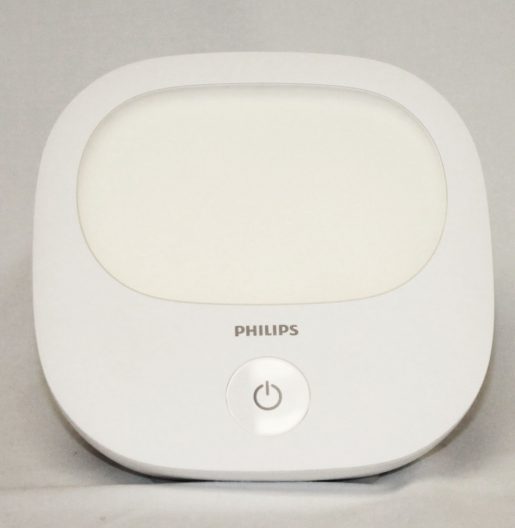The HSLS website contains links to numerous databases, e-journals, and e-books of interest to mental health researchers and clinicians who need to know about major psychiatry and psychology information resources.
Access any of the following e-resources by typing the name of the resource in the Pitt Resources Quick Search box on the HSLS home page.
Databases:
For research and clinical decision-making:
- CogNet: e-books, e-journals, and proceedings related to the cognitive sciences from the MIT Press (for Pitt users only)
- Google Scholar: multi-disciplinary database of scholarly literature that includes articles, theses, books, abstracts and court opinions, from academic publishers, professional societies, online repositories, universities, and other websites
- PsycBOOKS: collection of current and classic peer-reviewed, full-text scholarly book chapters in the field of mental health (for Pitt users only)
- PsycINFO: abstracts and citations of peer-reviewed research in the psychological sciences (for Pitt users only)
- PsychiatryOnline: features the Diagnostic and Statistical Manual of Mental Disorders, fifth edition (DSM-5) and The American Journal of Psychiatry, as well as journals, textbooks, American Psychiatric Association Guidelines, self-assessment tools, clinical and research news, medication information handouts for patients, and previous editions of the DSM
- PubMed: contains citations and abstracts for biomedical literature from MEDLINE, life science journals, and online books (also available as a mobile app)
- Social Sciences Citation Index: identifies articles from social science-related scholarly journals. Searchable by topic or by citation, allowing you to identify articles that cite a particular article or author.
- UpToDate: current, authoritative topic reviews; includes references to the literature (also available as a mobile app)
For drug information:
- Micromedex: comprehensive drug information from sources such as the PDR and Martindale’s. Includes product identification tools, dosing tools, drug interaction tools, etc. (also available as a mobile app)
- Natural Medicines: the most authoritative resource available on dietary supplements, natural medicines, and complementary, alternative, and integrative therapies (also available as a mobile app)
For mental health instruments:
- HaPI (Health and Psychosocial Instruments): provides information on measurement instruments (i.e. questionnaires, interview schedules, checklists, coding schemes, rating scales, etc.) in the fields of health and psychosocial science (for Pitt users only)
- Mental Measurements Yearbook: full-text information about and reviews of English-language standardized tests covering educational skills, personality, vocational aptitude, psychology, and related areas (for Pitt users only)
- Substance Use Screening & Assessment Instruments Database: intended to help clinicians and researchers find instruments used for screening and assessment of substance use and substance use disorders
Popular psychiatry e-journals include:
- World Psychiatry
- JAMA Psychiatry
- American Journal of Psychiatry
- Molecular Psychiatry
- Lancet Psychiatry
- Biological Psychiatry
- Psychotherapy and Psychosomatics
- Schizophrenia Bulletin
- Journal of Neurology, Neurosurgery and Psychiatry
- Acta Psychiatrica Scandinavica
Popular psychology e-journals include:
- Annual Review of Psychology
- Psychological Bulletin
- Psychological Inquiry
- Trends in Cognitive Sciences
- Behavioral and Brain Sciences
- Psychological Science in the Public Interest
- Annual Review of Clinical Psychology
- Personality and Social Psychology Review
- Psychotherapy and Psychosomatics
- Clinical Psychology Review
*The psychiatry and psychology e-journals listed above have the highest Journal Impact Factors as shown in the 2016 edition of the Journal Citation Reports database.
To view a list of HSLS e-journals by subject, such as psychiatry, psychology, psychopharmacology, and psychophysiology, direct your browser to HSLS E-journals A-Z and then click on “Show Select Subject.”
Popular psychiatry and psychology e-books include:
- American Psychiatric Association Publishing Textbook of Psychopharmacology
- Adult Psychopathology and Diagnosis
- American Psychiatric Publishing Textbook of Psychiatry
- Clinical Manual of Emergency Psychiatry
- Diagnostic and Statistical Manual of Mental Disorders: DSM-5
- DSM-5 Clinical Cases
- DSM-5 Guidebook
- DSM-5 Handbook of Differential Diagnosis
- Dulcan’s Textbook of Child and Adolescent Psychiatry
- Gabbard’s Treatments of Psychiatric Disorders
- Introductory Textbook of Psychiatry
- Kaplan & Sadock’s Comprehensive Textbook of Psychiatry
- Massachusetts General Hospital Handbook of Behavioral Medicine
- Massachusetts General Hospital Handbook of General Hospital Psychiatry
- Professional Counselor’s Desk Reference
- Psychiatric Interview: A Practical Guide
- Psychiatry (Tasman, 4th)
- Stahl’s Essential Psychopharmacology: Prescriber’s Guide
To search for HSLS e-books by subject, direct your browser to HSLS E-Books by Subject.
Remote Access to HSLS E-Resources
Pitt’s remote access service for e-resources requires a valid Pitt username and password, plus a second method of verification through an app or phone line. Information on designating your second method of authentication can be found on the Multifactor Authentication at Pitt Web page. If you need help logging in, please contact the Pitt Help Desk at 412-624-HELP (4357).
UPMC MyApps is UPMC’s remote access tool that provides access to most HSLS online resources.
For more information about mental health resources, e-mail Jill Foust at jef2@pitt.edu or call 412-648-8923.
~ Jill Foust

 Did you know that in 2015 climatologist Brian Brettschneider
Did you know that in 2015 climatologist Brian Brettschneider  For a limited time in February, Falk Library invites you to visit a new exhibit, Walk On By. Courtesy of Northside Common Ministries, Walk On By features artwork by Pittsburgh artists looking at homelessness in our region. This exhibit has traveled to four local libraries and was featured at the Future Tenant Art Gallery downtown in 2017. The art pieces, including photography, painting, cartoons,
For a limited time in February, Falk Library invites you to visit a new exhibit, Walk On By. Courtesy of Northside Common Ministries, Walk On By features artwork by Pittsburgh artists looking at homelessness in our region. This exhibit has traveled to four local libraries and was featured at the Future Tenant Art Gallery downtown in 2017. The art pieces, including photography, painting, cartoons, 